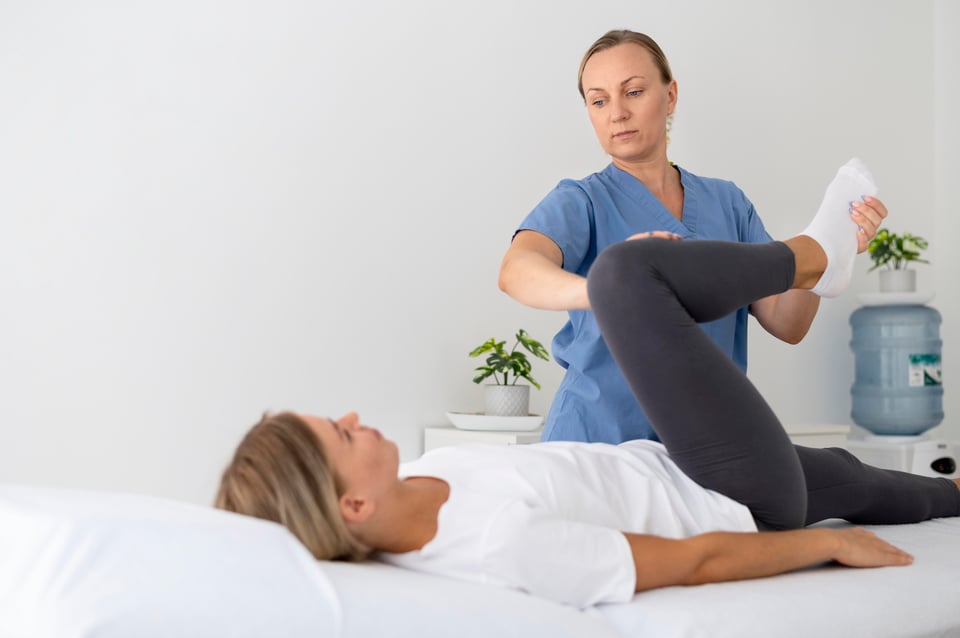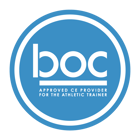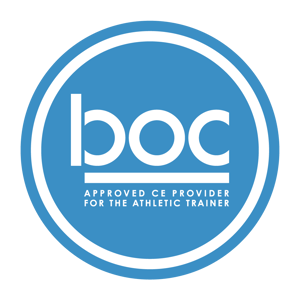Focus on the Core: Current Perspectives

Description
This course for Rehab professionals returns our focus to an area of the body that is all too often neglected in busy therapy settings—the core. A strong, balanced, well-coordinated core is essential to good function in all other parts of the body. This course examines current perspectives on the principles of core training for adults. We review relevant anatomy of the abdomen, back, hips, and pelvis and discuss how these muscle groups work together for core function. We discuss why the core is important, look at the history of the core in rehabilitation, and examine the main conceptual models that explain core function and dysfunction. Specifics of assessment and intervention for adults are discussed, and several detailed evidence-based exercise program progressions are presented. The course also examines special considerations for three specific adult populations: individuals with low back pain, athletes, and older adults. Throughout the course, exercise illustrations, Therapist Tips, and case scenarios provide practical advice. This course will help rehab professionals thoroughly understand the core to achieve the best possible functional outcomes with adult patients of all ages. Its information will be immediately useful in nearly any clinical setting.



Physicourses is an AOTA Approved Provider of professional development. Course approval ID# 6295. This distance learning-independent course is offered at 1.0 CEUs Intermediate Level, OT Service Delivery, Foundational Knowledge. AOTA does not endorse specific course content, products, or clinical procedures.
Available Course Credits
| Alaska State PT & OT Board | 10.00 | ||
 |
AOTA | 10.00 | |
| Arizona State Board of Physical Therapy | 10.00 | ||
| Arkansas State Board of Physcial Thearpy | 10.00 | ||
 |
BOC | 10.00 | |
| California Physical Therapy Board | 10.00 | ||
| Colorado Division of Professions and Occupations | 10.00 | ||
| Connecticut Department of Public Health | 10.00 | ||
| Delaware Examining Board of Physical Therapists and Athletic Trainers | 10.00 | ||
| District Of Columbia Department of Health | 10.00 | ||
| FPTA | 10.00 | ||
| Georgia State Board of Physical Therapy | 10.00 | ||
| Hawaii Board of Physical Therapy | 10.00 | ||
| Idaho Physical Therapy Licensure Board | 10.00 | ||
| Indiana Physical Therapy Board | 10.00 | ||
| Iowa Board of Physical Therapy and Occupational Therapy | 10.00 | ||
| Kansas State Board of Healing Arts | 10.00 | ||
| Kentucky Board of Physical Therapy | 10.00 | ||
| Maine Board of Physical Therapy | 10.00 | ||
| Maryland Board of Physical Therapy Examiners | 1.00 | ||
| Massachusetts Board of Allied Health Professionals | 10.00 | ||
| Michigan Board of Physical Therapy | 10.00 | ||
| Mississippi State Board of Physical Therapy | 10.00 | ||
| Missouri Advisory Commission for Physical Therapists | 10.00 | ||
| Montana Board of Physical Therapy Examiners | 10.00 | ||
| Nebraska Department of Health and Human Services | 10.00 | ||
| New Mexico Physical Therapy Board | 10.00 | ||
| North Carolina Board of Physical Therapy Examiners | 10.00 | ||
| North Dakota Board of Physical Therapy | 10.00 | ||
| Office of Professional Regulation, Vermont Secretary of State | 10.00 | ||
| Oklahoma Board of Medical Licensure and Supervision - Physical Therapy | 10.00 | ||
| Oregon Board of Physical Therapy | 10.00 | ||
| Pennsylvania Bureau of Professional and Occupational Affairs - Physical Therapy | 10.00 | ||
| Physical Therapy Governing Board New Hampshire | 10.00 | ||
| South Carolina Board of Physical Therapy | 10.00 | ||
| South Dakota Physical Therapy License Board | 10.00 | ||
| State of Alabama Board of Physical Therapy | 10.00 | ||
| State of Rhode Island Department of Health | 10.00 | ||
| Tennessee Board of Physical Therapy | 10.00 | ||
| Utah Physical Therapy Licensing Board | 10.00 | ||
| Virginia Board of Physical Therapy | 10.00 | ||
| Washington State Board of Physical Therapy | 10.00 | ||
| Wisconsin Physical Therapy License Board | 10.00 | ||
| Wyoming Board of Physical Therapy | 10.00 |
Course Content
| Focus on the Core: Current Perspectives Copy | Module | ||
| Course Evaluation | Module |
Sarah R.Stillings, MA, PT, MPT, CHT
Sarah R. (Sally) Stillings is a PT and Certified Hand Therapist in Texas. She received her physical therapy degree from the University of North Carolina at Chapel Hill. Prior to becoming a therapist, Sally taught university-level writing courses and was assistant editor of The Journal of Craniomandibular Practice. In her extensive career as a PT, she has held a variety of clinical, teaching, administrative, and business roles, including general PT practitioner, upper extremity specialist, clinic manager, hand therapy clinic coordinator, continuing education (CE) instructor, and CE course administrator. She has also served as Executive Director of the Kellermann Foundation, a U.S. nonprofit organization supporting healthcare and community development in Uganda, East Africa. Her work now focuses on creating evidence-based CE materials for rehab professionals. Sally is a lifelong runner who celebrates all those who cover the ground.

After successfully completing this continuing education course, the learner should be able to:
- Recall the concept of the core as a flexible cube
- List the primary muscles of the lumbo-pelvic-hip complex and their main functions
- Identify the five main functions of the core
- List at least 6 stated benefits of core training
- Recognize the importance of the core to posture, balance, and force transmission
- Recall neuromuscular considerations regarding the core
- Recall the history of our understanding of the core
- Identify the main theories, conceptual models, and classifications of core function
- Delineate one or more of the challenges inherent in core assessment
- Choose and apply appropriate assessment techniques for evaluating core function in adults
- Identify and discuss special considerations, assessment, and intervention ideas for the following adult populations:
- Individuals with low back pain
- Athletes
- Older adults
- List at least 4 contraindications to exercise intervention
- Differentiate between the motor control, general exercise, and hybrid approaches to core training; provide the reasoning for your specific choice of approach
- Provide 3 examples of specific exercise interventions for core rehabilitation in adults
- Recognize how Pilates, tai chi, and yoga may be used for core training
- Using case studies, identify and apply evidence-based approaches to core evaluation and treatment that will help maximize patients' function in their daily activities
Focus on the Core: Current Perspectives—Table of Contents
Hour 1
Course Instructions 2
About the Author / Course Description 3
Course Objectives 4
Table of Contents 5
Introduction 8
Chapter 1: Applied Anatomy 10
Superior and Inferior Core Muscles 12
Anterior Core Muscles 15
Posterior Core Muscles 17
Superficial Layer 17
Intermediate Layer 19
Deep Layer 21
Lateral Core Muscles 22
Hour 2
Chapter 2: Why Is the Core So Important? 25
Functions of the Core 25
Benefits of Core Training 28
Postural Considerations 30
Balance Problems 31
Neuromuscular Considerations 32
Chapter 3: Conceptual Models 36
History of Understanding of the Core 36
Hour 3
Current Conceptual Models and Classification Systems 42
Intra-Abdominal Pressure 43
Core Stability 45
Kinetic Chain Concept 50
Core Musculature Classifications 53
Local Motor Control vs. General Exercise Approach 56
Hour 4
Chapter 4: Assessment of the Core 59
The Challenge of Core Assessment 59
Patient History 61
Medical History 62
History of the Current Complaint 63
Systems Review 65
Objective Assessment 66
Specialized Assessment Procedures 67
Observation—Sagittal Plane 68
Observation—Frontal and Transverse Planes 70
Observation of Gait 71
Range of Motion and Flexibility 72
Muscle Strength 73
Hour 5
Muscle Recruitment 78
Muscle Endurance 80
Balance 83
Dynamic Core Stability Testing 85
Chapter 5: Special Considerations for Low Back Pain 93
Core Function in the Context of LBP 95
Local Motor Control vs. General Exercise Approach 97
Hour 6
Core Assessment for Patients with Low Back Pain 100
Interventions for Patients with Low Back Pain 102
Therapeutic Exercise 104
Final Thoughts 109
Chapter 6: Special Considerations for Athletes 110
Core Function in Sport Performance 110
Core Training for Athletes 113
Current Perspectives 115
Assessment of the Core in Athletes 117
Front Abdominal Power Test 118
Side Abdominal Power Test 119
Hour 7
Core Stability and Injury Risk 121
Sample Core Stabilization Training Program 122
Cognitive Phase 123
Static Stabilization Phase 124
Dynamic Stabilization Phase 126
An Opposing Viewpoint 130
Specific Recommendations for Athletes with LBP 133
Neutral Spine 137
Abdominal Bracing 137
Partial Curl-Up 138
Side Plank 139
Quadruped Exercise 140
Supine Bridge 141
Prone Plank 142
Progression 143
Hour 8
Chapter 7: Special Considerations for Older Adults 145
Core/Trunk Strength and Function in Older Adults 145
Assessment of the Core in Older Adults 150
Intervention for Older Adults 154
Core Control 155
Balance and Proprioception 156
Flexibility 156
Aerobic and Strengthening Exercise 158
Hour 9
Chapter 8: Core Rehabilitation and Training 160
Contraindications to Core Training Exercises 160
Choosing Your Approach 162
Patient Education 163
Flexibility Exercises 164
Manual Therapy 164
Core Control Training and Core Strengthening Exercises 165
Motor Control Approach 166
General Exercise Approach 168
Hybrid Approach 171
Exercise Progressions 176
Other Exercise Disciplines 182
Pilates 182
Tai Chi 185
Yoga 186
Hour 10
Conclusion 191
Case Studies 192
Appendix: Provider and Patient Education Resources 197
References 201
Examination
Evaluation
Customer Cancellation:
Customers may request cancellations of their enrollment or subscription in our digital or live educational services, subject to the terms outlined below. Cancellation requests must be made in writing, either through email or through our designated cancellation process.
Refund Policy:
Refunds will be provided according to the following guidelines: i) For cancellation requests made within 5 days of the initial enrollment or subscription, a full refund will be issued. Refunds will be issued using the same method of payment used for the original transaction, unless otherwise agreed upon in writing.
Provider Cancellation:
In the event Physicourses cancels your course, you will be issued a full refund or transfered to a course of equal or greater value.
Physicourses Conflict of Interest Disclosure Policy for Authors and Staff:
All persons in a position to control the content of any educational activity (authors or staff from Physicourses) are required to disclose to Physicourses any potentially biasing or potential conflict of interests in relationships of a financial, professional, or personal nature.
The intent of this disclosure is not to prevent authors or staff with commercial affiliations from planning an educational activity, or to prevent a Presenter with commercial affiliations from presenting, but rather to inform Physicourses of any potentially biasing relationships so that conflicts are resolved prior to the activity.
It is the policy of Physicourses to ensure balance, independence, objectivity and scientific rigor in all of its continuing education activities. All relevant conflicts of interest identified by the planner, presenter, or as determined by Physicourses will be disclosed to the audience verbally and in writing prior to the start of the presentation.
Definitions for Authors/Staff:
Relevant financial relationships are those relationships in which you benefit by receiving a salary, royalty, intellectual property rights, gift, speaking fee, consulting fee, honoraria, ownership interest (e.g., stocks, stock options, or other ownership interest, excluding diversified mutual funds), or other financial benefit. Financial relationships can also include “contracted research” where the institution gets the grant and manages the funds and you are the principal or named investigator on the grant.
Educational Level: Intermediate
Target Audience: PT, PTA, OT, OTA, ATC
Course Completion Requirements: Passing an online exam with 70% or greater will be required to earn continuing education credit
This course is approved for 1.0 CEUS. 10 contact hours
Physicourses is committed to ensuring accessibility to the most extensive audience possible. If you have any questions or special needs requests, please contact us at info@physicourses.com.